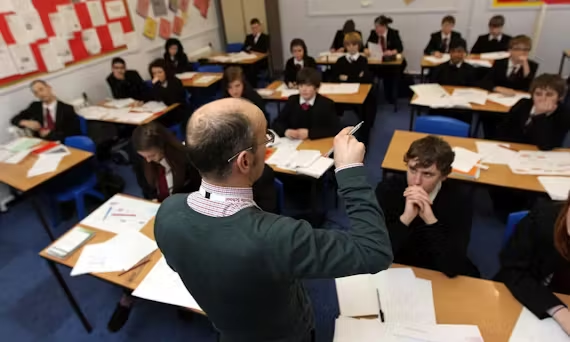7 BAD things about SATs (and 7 GOOD things!)
Table of Contents
Over recent years, SATs have gained a bad reputation amongst many parents and teachers - but what is so bad about SATs? Are these concerns down to overly protective parents or overstretched teachers? Are SATs all bad, or do they have some redeeming features?
This article explains the good, the bad and the ugly when it comes to SATs.
7 BAD things about SATs
Ok, let's start off negatively! Here's 7 BAD things about SATs tests...
1. SATs could cause stress and anxiety in children
One main concern about SATs is the idea of putting excessive pressure on young children to 'perform well'. Many teachers and parents believe that the need to 'get a good score' causes unnecessary stress and anxiety, impacting children's mental health. Some children have been known to make themselves sick with worry and, perhaps even more worrisome, label themselves failures before they have even begun secondary education. Unsurprisingly, this could result in low self-esteem and a lack of self-confidence.

2. SATs put schools under pressure to compete for pupils
Schools are under pressure to reach a minimum standard of 65% of pupils achieving age-related expectations in reading, writing and mathematics. This is despite them often living in vastly different communities with differing needs and starting points.
Each school's SATs results are used to generate 'school league tables', which some parents consider when applying for schools. The pressure to achieve a strong set of results means that schools could be competing to keep applications high rather than collaborating to offer children the best education.

3. Preparing for SATs takes time
SATs preparation takes time. The practical organisation and preparations for SATs takes time away from direct teaching, and the intense focus on revision before SATs takes time away from other areas of the curriculum, such as P.E., art and science, which offer children a balance.

4. SATs can bring pressure into the family home
Parents can feel under pressure to work more with children at home, which can further the stress and anxiety children are feeling. In addition, if children work more at home, they are less likely to get the opportunity to relax and play, which is crucial in maintaining good mental health.

5. SATs might not be the best way to monitor school standards
SATs are designed to monitor school standards and the effectiveness of teaching, but can a series of pupil-focused tests offer a true reflection of this? Following devolution, pupils in Wales and Scotland are no longer required to sit SATs exams. Instead, Scotland and Wales monitor school standards through regular inspections and internal school assessments.
6. SATs only test children's abilities in Maths and English
SATs results only indicate progress in three areas of a child's learning and development- Reading, writing and Mathematics. SATs offer no insight into other important areas of development, such as social skills, sporting ability or creativity. Not all children are academically minded, and SATs do not offer a holistic view of a child's development.

7. SATs aren't suitable for all children
Children with different needs, such as those with SEND or EAL, can be negatively affected by the process of SATs and, indeed, may struggle to access them at all. Schools have also been known to exclude children with SEND or EAL from sitting SATs to ensure that their scores don't negatively impact the school's overall results.
7 GOOD things about SATs
Now for the good bits! Here's 7 GOOD things about SATs...
1. Children cannot fail SATs
Your child cannot fail their SATs tests! As such, SATs offer priceless, risk-free exam experience in preparation for more meaningful exams later on.
Unfortunately, tests and judgements are a fact of modern life. SATs can help children build the resilience they need to succeed in the future. Not only this, but the competition and expectations surrounding SATs may increase children's accountability for their own learning.

2. SATs may not cause as much stress as many suggest
Research by the University College London (UCL) suggested that the impact of SATs on stress may not be as bad as initially thought. Results indicated that children in England who took SATs were no less happy than those in Scotland and Wales, where SATs had been abolished following devolution.

3. SATs results are helpful to secondary schools
SATs results are often taken into consideration by secondary schools. They can help teachers understand children's individual academic strengths and weaknesses which are taken into consideration when placing children into sets.
Put simply, it's likely that children will enjoy a better experience starting secondary school if their teachers have a clearer picture of their academic level.

4. SATs represent the end of Primary Education
Year 6 SATs represent the climax of Primary education, where everyone is working towards the same goal.
A great deal of effort goes into preparing for SATs with children revising topics via past KS2 SATs papers and targeted worksheets etc. Children complete a lot of work and are likely to learn (and retain) much more than if they never faced SATs at all.
The positive impact of collectively working towards an assessment should not be underestimated.

5. SATs can highlight the good and bad and drive improvement
SATs help to monitor and improve school standards, highlighting effective teaching and shining a spotlight on areas for improvement.
Identifying good schools means that effective methods can be shared with schools requiring improvement. In this respect, SATs are doing the job they were designed to do in ensuring children receive the education they deserve.
6. SATs are a measure of progress from KS1 to KS2
SATs results help to illustrate the academic impact that school has had on your child and the progress they have made from Key Stage One to Key Stage Two. This 'impact' is what all schools aim to raise and it is quantified by a child's 'value added' score.

7. SATs improve and maintain standards
Research has suggested that SATs could be instrumental in improving and maintaining standards in primary education.
For example, research by Bristol University suggested that the abolition of league tables in Wales in 2001 led to a drop in standards in about three-quarters of schools.
Put simply, SATs add to the accountability and transparancy of schools to ensure your child receives a strong education
